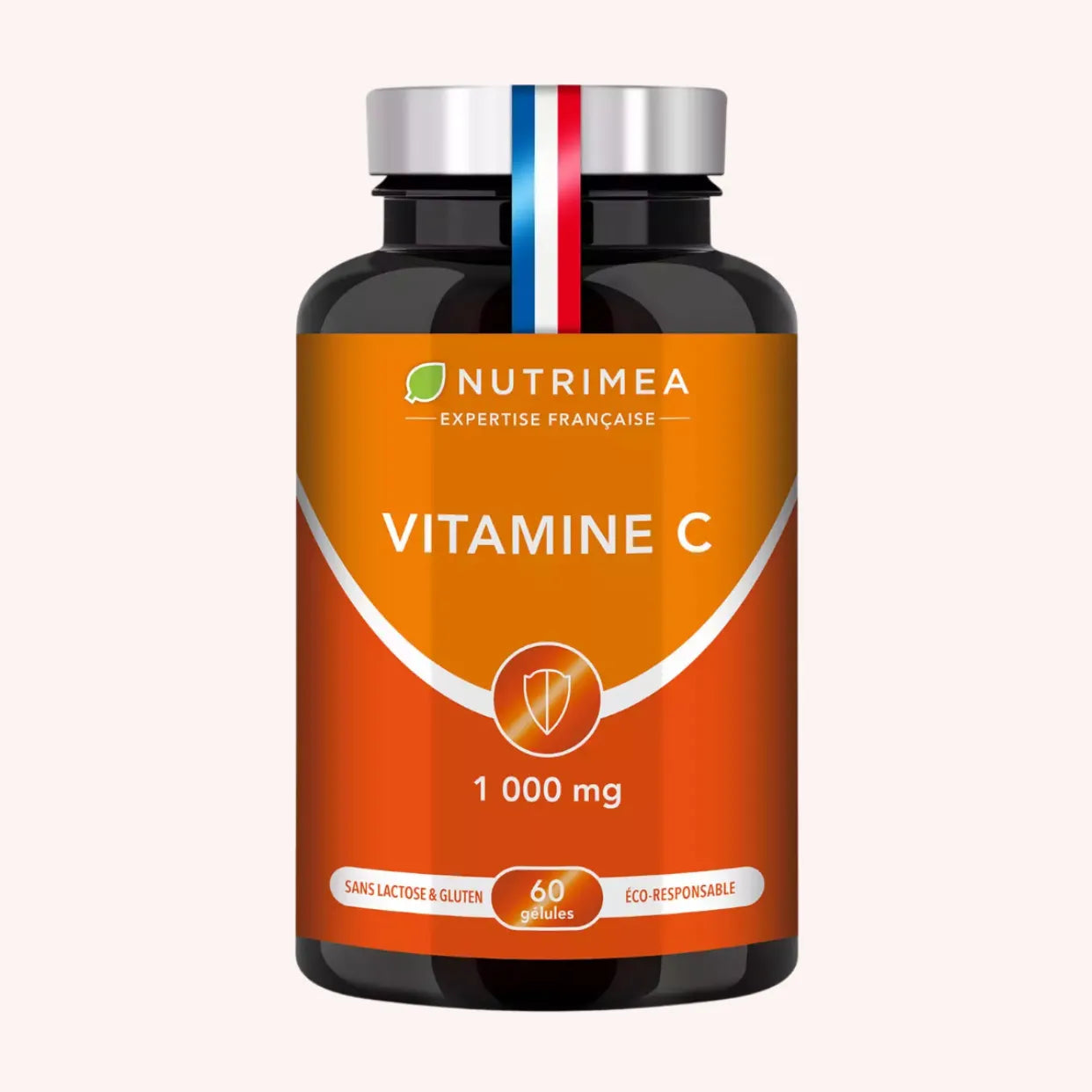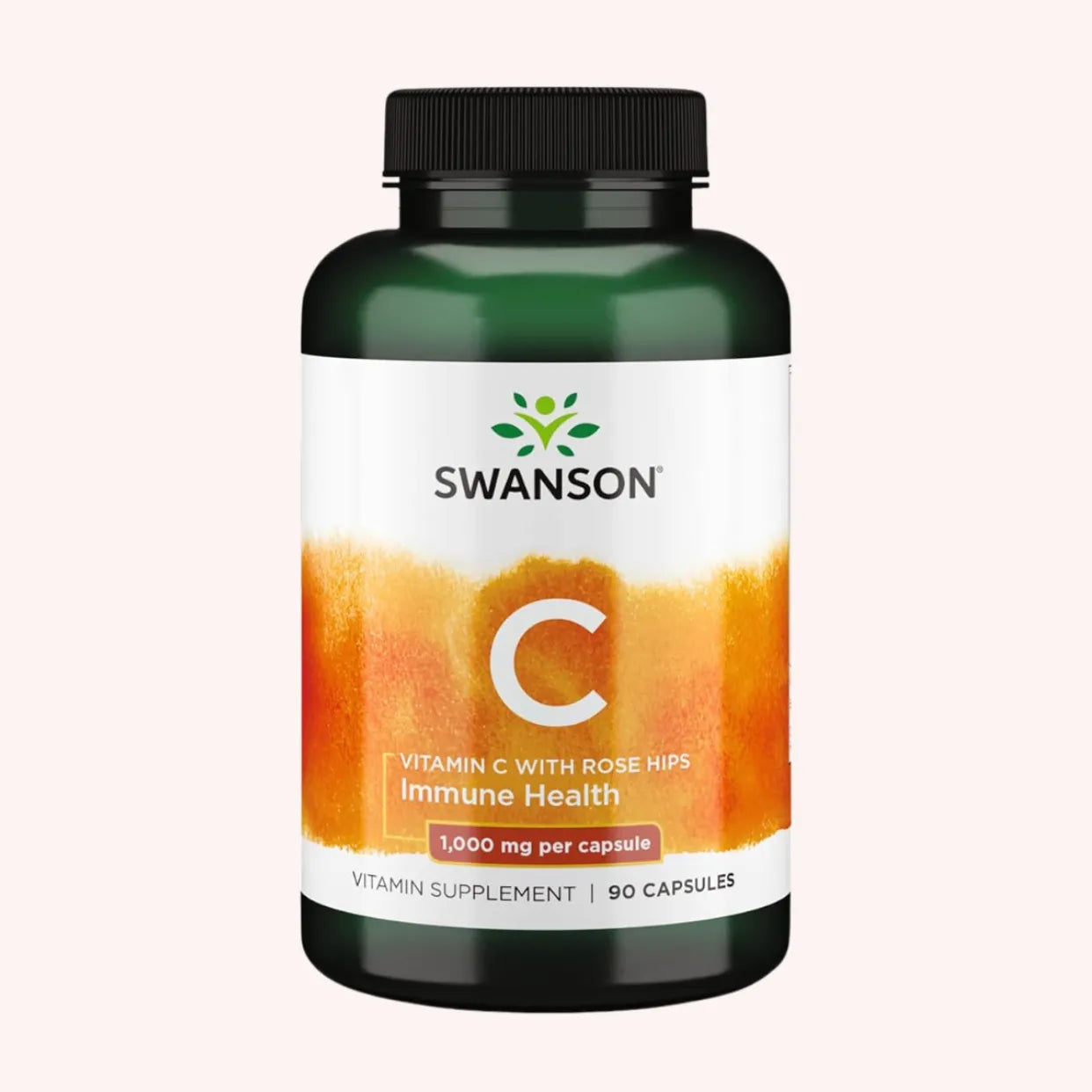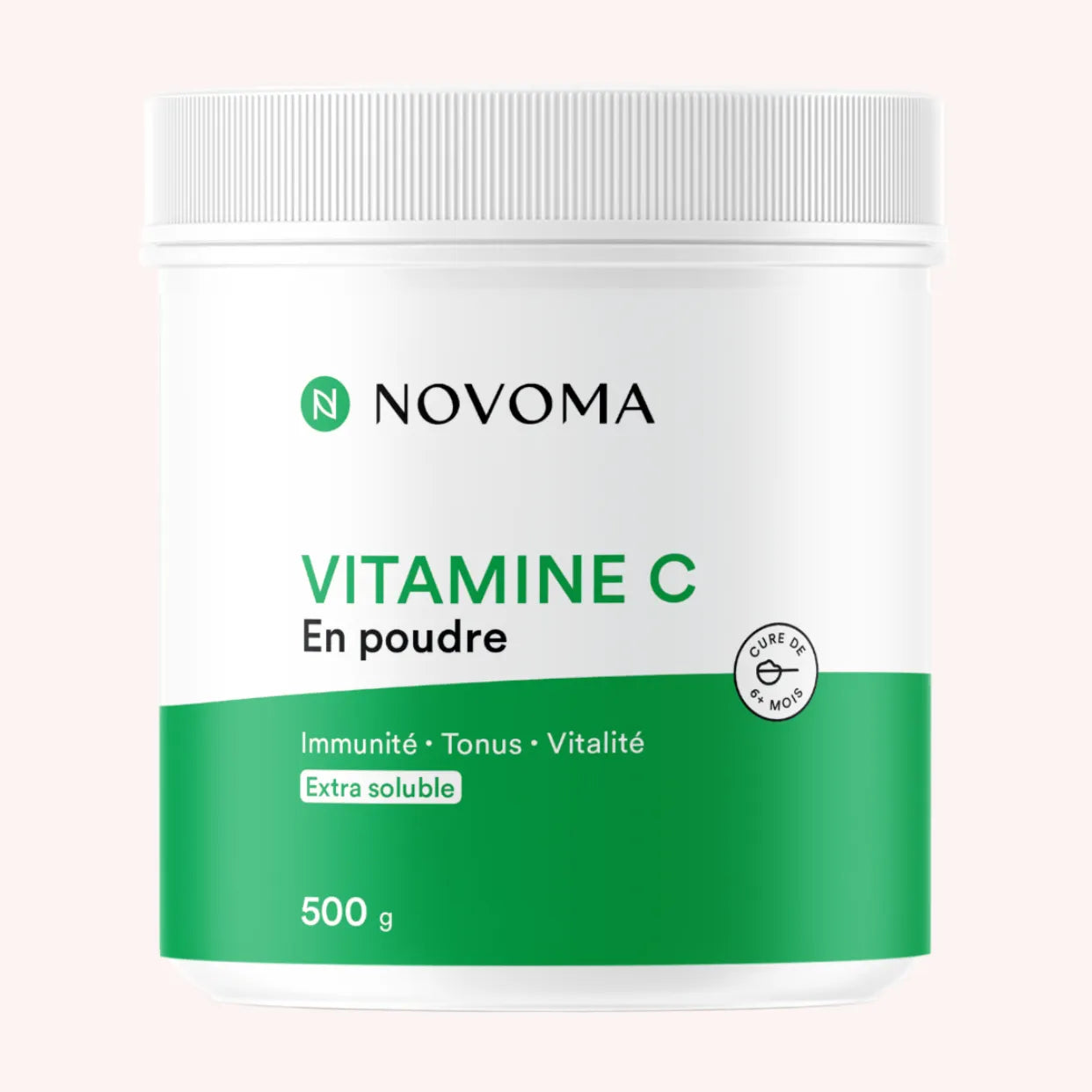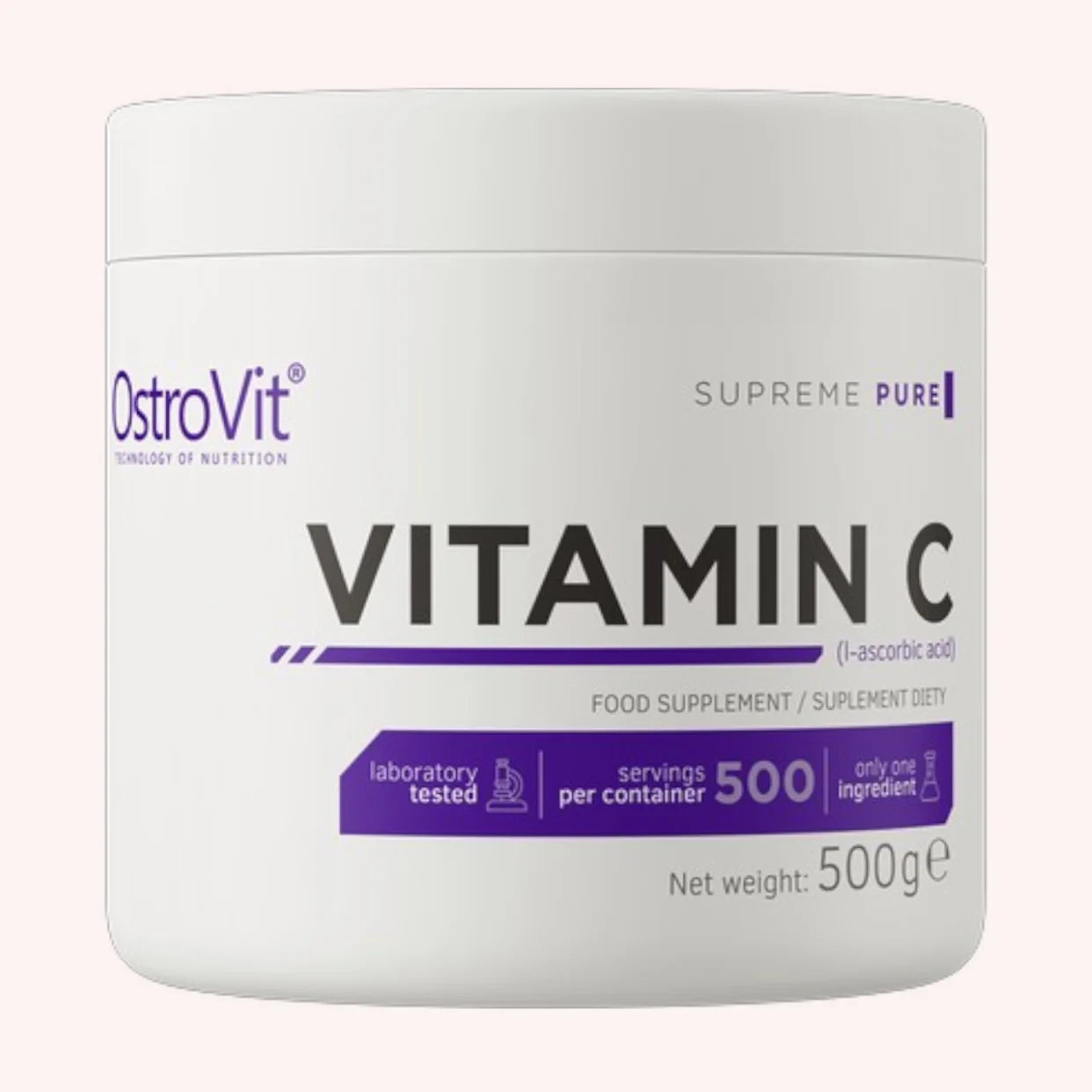Vitamin C, often nicknamed "the sunshine vitamin" for its beneficial effects on our vitality and well-being, is much more than just a nutrient. Essential for many biological processes, it is a valuable ally for your health, especially if you are an athlete. Indeed, this water-soluble vitamin is essential for muscle health, immune function, energy production, and many other aspects of human physiology.
Here, we'll explore in detail the benefits of vitamin C , its sources, the risks of deficiency, and how to optimize your daily intake to improve your athletic performance.
Vitamin C, what is it and where can you find it?
Definition and characteristics
Vitamin C is a water-soluble vitamin that dissolves in water and acts as a powerful antioxidant in the human body . It influences the activity of many bodily functions, including connective tissue health, gene expression, cell growth, and the immune system.
Unlike vitamin D, vitamin C cannot be produced by the human body and must therefore be obtained through diet or supplements.
Sources of vitamin C
Power supply
The primary source of vitamin C for most people is food. A varied and balanced diet maintains adequate levels of vitamin C. Foods rich in vitamin C include:
- Fruits: Citrus fruits (oranges, lemons, grapefruit), strawberries, kiwis, and guavas are among the best natural sources of vitamin C. For example, a single medium orange can provide about 70 mg of vitamin C, or nearly 78% of your daily intake. Strawberries, with about 59 mg of vitamin C per cup, are not only delicious but also a great way to increase your daily intake. Kiwis are especially rich in vitamin C , with about 71 mg per fruit, and are also a significant source of dietary fiber.
- Vegetables: Red bell peppers, broccoli, Brussels sprouts, and spinach are also rich in this vitamin. Red bell peppers, for example, contain about 190 mg of vitamin C per cup, which is more than double the amount found in an orange. Broccoli, when steamed, retains much of its vitamin C, providing about 50 mg per cup. Brussels sprouts, with about 75 mg per cup cooked, are another excellent source. Spinach, while better known for its iron content, also provides a significant amount of vitamin C.
- Herbs and spices: Fresh parsley and thyme also contain significant amounts of vitamin C. Two tablespoons of fresh parsley provide about 10 mg of vitamin C, which may not sound like much but adds up quickly if you use it regularly in your meals. Fresh thyme is even richer, with about 45 mg of vitamin C per 100 gram serving, making it a great addition to your diet to boost your vitamin C intake.
Despite these varied food sources, it can be difficult to meet daily needs through food alone, especially for people with dietary restrictions or specific habits.
For example, vegans may have difficulty getting enough vitamin C if they don't eat a wide variety of fresh fruits and vegetables . Similarly, people on restrictive diets for health or weight loss reasons may also face challenges maintaining adequate vitamin C levels.
In such cases, a health food supplement can be an effective solution to ensure sufficient vitamin C intake.
Food supplements
For those who cannot get enough vitamin C through their diet, there are different types of dietary supplements.
Vitamin C is available in tablets, capsules, powders, and liquid drops. Vitamin C supplements offer a convenient and reliable solution for those who have difficulty getting enough of this essential vitamin through other means.
Vitamin C supplement dosages can vary depending on individual needs, age, weight, and activity level. Typically, doses range from 500 mg to 2000 mg per day, but it's important to consult a healthcare professional to determine the right dose for your body.
The benefits of vitamin C for athletes
Muscle health and recovery
Vitamin C plays a significant role when it comes to muscle health and recovery. It helps reduce post-workout soreness and pain, which speeds up muscle recovery.
As an antioxidant, it neutralizes free radicals produced during exercise, reducing oxidative stress and cellular damage. Fast and efficient recovery allows athletes to train more frequently with better quality recovery.
Energy production
Vitamin C plays a fundamental role in energy metabolism by participating in the synthesis of carnitine, a molecule essential for the transport of fatty acids into the mitochondria, where they are burned to produce energy.
This process is particularly important for endurance sports, such as running or cycling, where the body must draw on its fat reserves to sustain prolonged exertion.
Strengthening the immune system
Strengthening the immune system is another benefit of vitamin C for athletes. Intense physical activity can temporarily weaken the immune system.
Vitamin C supports the immune system by protecting immune cells from oxidative stress and boosting their function. It also increases the production of white blood cells, strengthening the body's natural defenses.
Collagen synthesis
Vitamin C is essential for the synthesis of collagen , a protein vital for the health of joints, tendons and ligaments. By promoting the production of collagen , it helps strengthen connective tissues and maintain their integrity.
This is especially important for athletes who put their joints under high stress during training and competitions.
Reduction of inflammation
Vitamin C helps reduce joint inflammation after intense exercise. Inflammation can lead to long-term injuries, limiting athletes' ability to train effectively.
By reducing inflammation, vitamin C helps maintain joint health and prevent injuries, allowing athletes to maintain a rigorous training program.
Vitamin C deficiency
Vitamin C deficiency can have adverse effects on health and athletic performance. Signs of deficiency include:
- Fatigue and muscle weakness: A lack of vitamin C leads to decreased energy production, causing fatigue and weakness. Vitamin C plays an important role in the synthesis of carnitine, which transports fatty acids into the mitochondria to convert them into energy. For athletes, this results in reduced performance and slower recovery.
- Joint pain: Vitamin C deficiency leads to decreased collagen production , affecting joints. Collagen is a key protein for maintaining the integrity of tendons, ligaments, and cartilage. Insufficient production can cause pain, stiffness, and increased susceptibility to injury.
- Weakened immune system: A vitamin C deficiency makes the immune system less effective. Vitamin C protects immune cells from oxidative stress and supports their optimal function, increasing white blood cell production. Insufficient intake weakens the immune system.
- Slow healing: Vitamin C is necessary for tissue repair, and a deficiency delays wound healing. It is involved in the synthesis of collagen , which is necessary for the formation of new tissue. A vitamin C deficiency slows this process, prolonging recovery time after injury.
Athletes most at risk for vitamin C deficiency are those who follow restrictive diets, train intensively without adequate nutrition, or do not consume enough fruits and vegetables rich in vitamin C.
Dosage and supplementation
It is essential to consult a healthcare professional before starting vitamin C supplementation. Needs vary depending on age, gender, and physical activity level. Generally, recommended intakes for athletes range from 500 mg to 2000 mg per day, depending on their current vitamin C levels.
Supplements are available in capsule, tablet, or liquid form, and are recommended to be taken with food for optimal absorption.
Our advice for effective supplementation
- Consult a healthcare professional: Before starting any supplementation, it is important to discuss with a healthcare professional to determine the appropriate dosage and ensure there are no interactions with any potential ongoing medical treatment or medical conditions.
- Choose high-quality supplements: Opt for reputable brands and high-quality products to ensure the effectiveness and safety of supplementation.
- Take with a meal: To maximize absorption, it is recommended to take vitamin C supplements with a meal.
- Monitor for side effects: Although vitamin C is generally well tolerated, excessive consumption can cause side effects such as digestive upset. Adjust your dose as needed and consult a healthcare professional if you experience any adverse effects.
Vitamin C is an essential vitamin in the daily life of athletes, influencing muscle health, energy production, recovery, the immune system, and joint health.
Particular attention should be paid to ensuring adequate levels of vitamin C, whether through diet or supplementation. By optimizing vitamin C levels, bodybuilders and athletes can improve their performance and vitality, ensuring continued progress in their physical activities.
Sources:
- Esteban 2014-2016 – Chapter on biological dosages of vitamins and minerals. : https://www.santepubliquefrance.fr/les-actualites/2019/esteban-2014-2016-chapitre-dosages-biologiques-des-vitamines-et-mineraux-pas-de-deficit-important-ou-de-carence-a-grande-echelle
- Role of Vitamin D in Athletes and Their Performance: Current Concepts and New Trends. : https://pmc.ncbi.nlm.nih.gov/articles/PMC7071499/
- Performance improvement in sport through vitamin D – a narrative review . : https://pubmed.ncbi.nlm.nih.gov/36394723/
- Vitamin D and the Athlete : Emerging Insights. : https://pubmed.ncbi.nlm.nih.gov/25131312/
- The impact of 1-year vitamin D supplementation on vitamin D status in athletes : a dose–response study. : https://pubmed.ncbi.nlm.nih.gov/27460266/
- Padayatty SJ, Levine M. "Vitamin C: the known and the unknown and Goldilocks." Oral Dis. 2016 Sep;22(6):463-93. doi:10.1111/odi.12446. Epub 2016 Apr 14. PMID: 26808119. Free PMC article. Review. : https://pubmed.ncbi.nlm.nih.gov/26808119/
- Kuhn SO, Meissner K, Mayes LM, Bartels K. “Vitamin C in sepsis.” Curr Opin Anaesthesiol. 2018 Feb;31(1):55-60. doi: 10.1097/ACO.00000000000000549. PMID: 29176375. Free PMC article. Review. : https://pubmed.ncbi.nlm.nih.gov/29176375/
- Lykkesfeldt J, Tveden-Nyborg P. “The Pharmacokinetics of Vitamin C.” Nutrients. 2019 Oct 9;11(10):2412. doi:10.3390/nu11102412. PMID: 31601028. Free PMC article. Review. : https://pubmed.ncbi.nlm.nih.gov/31601028/
- Sauberlich HE. "Pharmacology of vitamin C." Annu Rev Nutr. 1994;14:371-91. doi: 10.1146/annurev.nu.14.070194.002103. PMID: 7946525. Review. : https://pubmed.ncbi.nlm.nih.gov/7946525/
- Łukawski M, Dałek P, Borowik T, Foryś A, Langner M, Witkiewicz W, Przybyło M. “New oral liposomal vitamin C formulation: properties and bioavailability.” J Liposome Res. 2020 Sep;30(3) :227-234. doi:10.1080/08982104.2019.1630642. Epub 2019 Jul 2. PMID: 31264495. : https://pubmed.ncbi.nlm.nih.gov/31264495/










